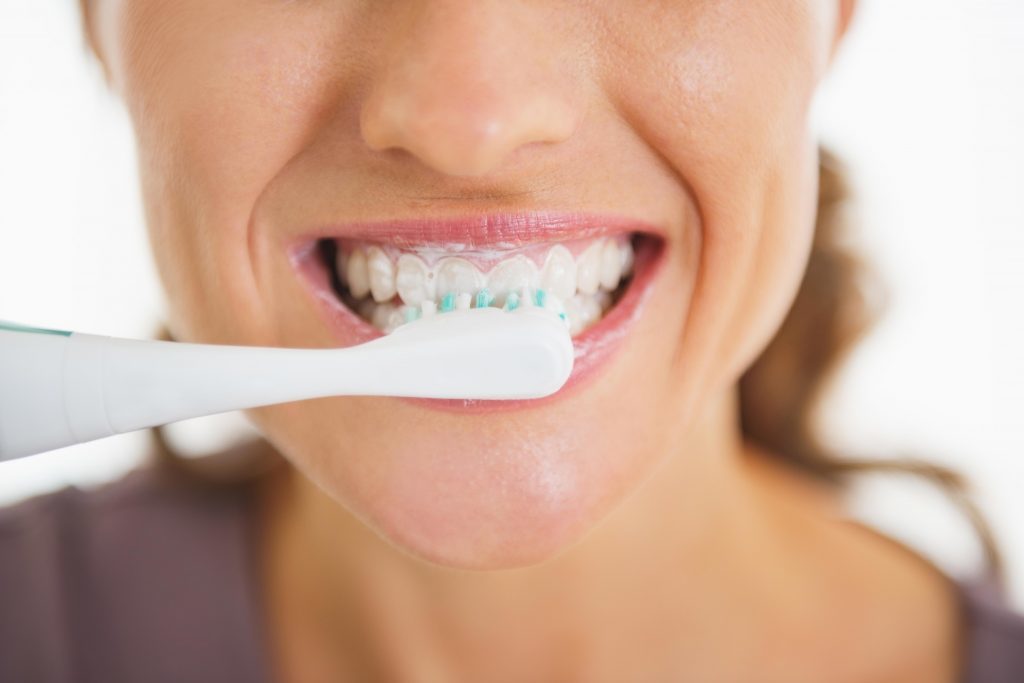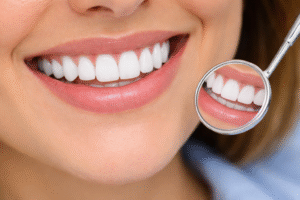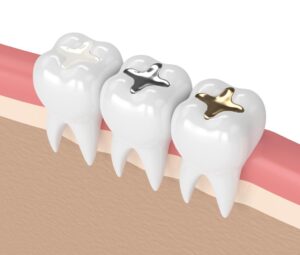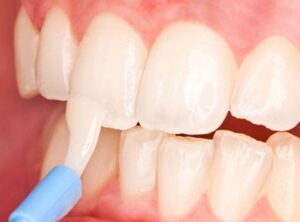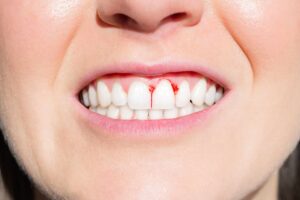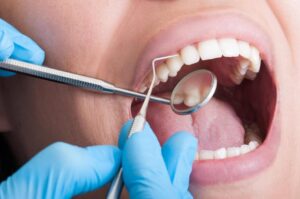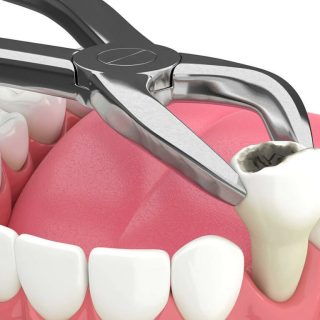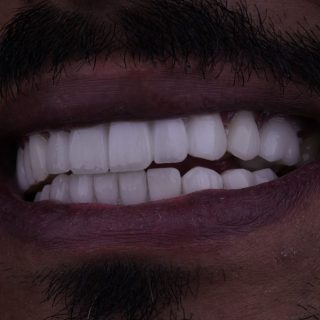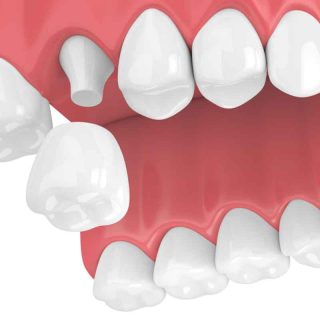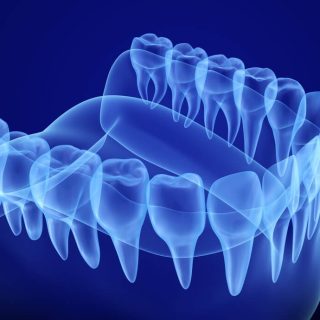Maintaining good dental health and hygiene is one of the simplest, most effective ways you can protect your health. Excellent oral hygiene not only results in a bright smile, but is also linked to your health. Neglecting oral hygiene can lead to common issues such as tooth decay, periodontal disease and halitosis. On the other hand, maintaining a healthy mouth supports your confidence, comfort, and everyday quality of life.
In this blog, we’ll explore why oral hygiene matters, the risks of neglecting it, and the practical steps you can take to safeguard both your smile and your general health for the long term.
The importance of dental health and hygiene
Oral hygiene is more than a daily habit. Proper oral care protects against common dental problems and supports your general well-being in ways many people overlook.
Reasons why maintaining oral hygiene is so important:
- Prevents dental problems: Regular brushing and flossing remove plaque, lowering the risk of cavities, gum disease, and tooth loss
- Protects overall health: Oral disease is linked to severe health conditions such as heart disease, diabetes and respiratory diseases.
- Boosts confidence: A healthy smile reduces bad breath and enhances self-esteem in social and professional settings.
- Saves money and discomfort: Preventive care reduces the need for costly and often painful treatments later on.
How oral health is linked to general health
Oral problems that go untreated allow bacteria to penetrate the bloodstream, lead to inflammation, and affect other areas of the body. Research shows that gum infections such as gingivitis and periodontitis can lead to serious diseases, and a pre-existing health condition can further weaken the teeth and gums, creating a two-way relationship between oral and general health.
Medical conditions related to oral health
Poor dental health and hygiene have been linked to several serious health conditions, including:
- Cardiovascular disease: Gum disease might actually raise your chances of developing heart issues.
- Stroke: Bacteria from gum disease can contribute to blood vessel damage.
- Endocarditis: An infection of the heart’s inner lining caused by oral bacteria entering the bloodstream.
- Pneumonia: Inhaled oral bacteria can lead to lung infections.
- Pregnancy complications: Studies suggest that gum disease might be connected to premature births and babies being born with a lower than average weight.
Health risks from neglecting oral care
Ignoring daily oral hygiene mouth care habits can have consequences that go far beyond an occasional toothache. When plaque and bacteria are left untreated, they damage both the teeth and gums, and over time these problems can escalate into more serious health issues.
- Cavities and tooth decay: Plaque buildup erodes enamel, leading to painful cavities and eventual tooth damage.
- Gum disease (gingivitis and periodontitis): Inflammation of the gums can progress to infections that damage bone and cause tooth loss.
- Persistent bad breath: Poor hygiene leaves bacteria to thrive, causing halitosis that simple mouthwash can’t fix.
- Tooth loss: Advanced decay and gum disease can weaken the structures holding teeth in place.
- More serious health problems: Gum disease and general mouth inflammation might actually play a part in causing more severe health conditions, like heart disease or respiratory infections.
Warning signs of poor oral hygiene
Your mouth can reveal early signs of underlying problems. Understanding the warning signs will help you tackle problems before they become serious. Some of the most common warning signs are:
- Bleeding gums: often a first sign of gum disease.
- Chronic halitosis: may indicate a consistency of bacteria, and the possibility of an infection.
- Mouth pain or sensitivity: might indicate decay, cavities, or even erosion of the tooth or enamel.
- Loose or shifting teeth: If your teeth feel loose or seem to be moving, this might indicate a serious issue with your gums.
- Receding gums: exposure of tooth roots that can cause discomfort.
- Sores that don’t heal: it’s important to get those checked out by your dentist.
- Swelling in the jaw or face: may indicate infection or abscess.
Discoloration or darker teeth can also be a sign of poor dental hygiene or certain lifestyle habits. If you’re concerned about stains and want an aesthetic solution, you may be interested in our professional teeth whitening price.
Tips to maintain oral health & hygiene
- Brush twice a day: Use a soft-bristled toothbrush and fluoride toothpaste, spending at least two minutes each time.
- Clean your tongue: Your tongue traps bacteria that cause bad breath and plaque buildup. Use your toothbrush or a tongue scraper daily.
- Clean between teeth daily: Floss, water flossers, or interdental brushes help remove food particles and plaque that brushing can’t reach.
- Use an antibacterial, alcohol-free mouthwash: This helps reduce harmful bacteria and plaque while keeping your mouth fresh.
- Replace your toothbrush regularly: Switch every 3–4 months, or sooner if the bristles are worn.
- Eat a balanced diet: Limit sugary foods and drinks, which feed bacteria that cause decay. Choose nutrient-rich foods to strengthen teeth and gums.
- Avoid smoking and tobacco products: Tobacco is a major cause of gum disease, staining, and oral cancer.
- See your dentist regularly: Most people need regular dental checkups and cleaning. It’s generally a good idea to visit the dentist for a check-up every six months. But, your dentist might suggest you come in sooner or more often, depending on what you need.
Practical tooth brushing techniques
- Angle it right: Tilt your toothbrush at a 45-degree angle pointing towards your gums.
- Use gentle circles: Avoid scrubbing too hard. Instead, use small, circular motions to get rid of plaque effectively while protecting your tooth enamel and gums.
- Reach every spot: Be sure to brush all around every single tooth; the outer side, the inner side, and the surface you use for chewing.
- Monitor how long you brush: Brush thoroughly for a minimum of two minutes, two times per day. A helpful tip is to divide your mouth into four parts. Spend about 30 seconds brushing each section to make sure you cover everything.
- Clean your tongue: Gently brush or use a tongue scraper to remove bacteria that cause bad breath.
- Rinse properly: Spit out the toothpaste but avoid rinsing immediately with water to allow fluoride more time to protect your teeth.
Key signs you need a dental checkup
Even with a good daily routine, certain symptoms mean it’s time to see a dentist. Some of the most common signs include:
- Persistent toothache or sensitivity
- Bleeding or swollen gums
- Bad breath that doesn’t go away
- Loose or shifting teeth
- Receding gums
- Mouth sores that don’t heal
- Swelling in the jaw or face
- Difficulty chewing or biting
El-Shenawy Dental Centers: advanced dentistry for lasting oral health
For expert care and lasting results, El-Shenawy Dental Centers is the ideal choice for your dental health and hygiene needs. The clinics combine advanced technology with highly qualified specialists to provide complete services covering the full spectrum of dental care from regular exams to complex cosmetic and restorative solutions. With an emphasis on patient comfort, personalized care, and lasting oral health, our team is dedicated to keeping your smile healthy and confident.
Prioritize your oral health. Book your appointment with El-Shenawy Dental Centers today.
Frequently asked question
-
Should I use mouthwash daily?
No. You don’t actually have to use mouthwash every single day. While those antibacterial rinses can definitely help make your breath smell better, studies suggest they might also disrupt the balance of the good bacteria in your mouth. The smartest thing to do is just ask your dentist if using it regularly is really necessary for you.
-
Can mouthwash replace brushing
No. Mouthwash is helpful, but it cannot remove plaque and food particles the way brushing and flossing can. It should only be used as an additional step, not a substitute.



